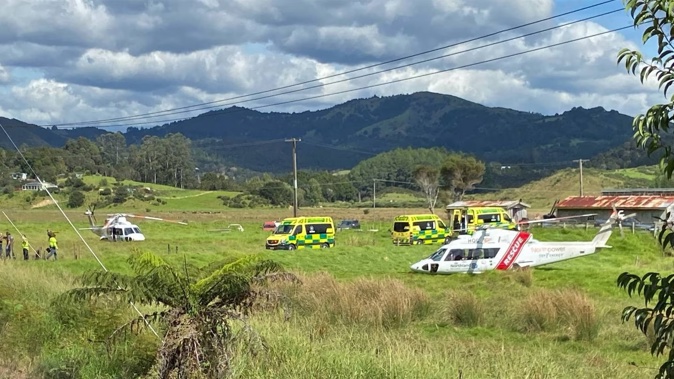
A Northland man who caused the deaths of a mother and her 11-year-old son in a head-on crash near Kāeo was found to have methamphetamine and cannabis in his blood.
Craig William Thomson was sentenced to three years’ jail when he appeared in the Kaikohe District Court earlier this year.
He had been charged with two counts of causing death and three of causing injury while in charge of a motor vehicle, when his blood contained evidence of a controlled drug (namely methamphetamine and cannabis).
The court heard Thomson picked up his 5-year-old son from Kerikeri at 5.30am on April 2, 2022, and drove to Mangōnui, where they spent the morning fishing off the wharf.
He left Mangōnui around noon to drive his boy back to Kerikeri.
Judge Brandt Shortland told the court Thomson planned to stop in Kāeo for a power nap and to get his son something to eat, but he never got there.
About 12.15pm, between Kāeo bridge and the township, his Ford Ranger crossed onto the wrong side of the road and collided head-on with a northbound Subaru Legacy.
The Legacy was driven by Denise Samson, 47, who was heading to Taipā to watch one of her sons play league for the Whangaroa Marlins.
With her were three of her younger sons, then aged 11, 12 and 13.
Samson and her youngest son died at the scene. Her two other boys, and Thomson’s young son, suffered significant injuries.
Her 13-year-old, for example, suffered a fractured hip, broken femur and serious facial injuries.
It was a “tragic and unnecessary situation”, Judge Shortland said.
After the crash Thomson told a number of people he had fallen asleep.
A blood test revealed the presence of methamphetamine and cannabis.
Judge Shortland said aggravating features included the presence of two controlled drugs in his system - “that cannot be ignored” - and that Thomson knowingly drove while tired, possibly as he was coming down off drugs.
The most aggravating feature was that more than one person was killed.
The three surviving boys were “lucky to be alive” and it was impossible to say how long it would take them to recover from long-term physical, emotional and psychological injuries.
Judge Shortland accepted that Thomson was genuinely remorseful, had no previous convictions, and pleaded guilty at the first opportunity.
He had been attending rehabilitation, was employed, and had skills.
The only time police had been concerned about him previously was in 2018 when he was picked up for speeding and said driving at speed kept him awake.
The judge said Thomson could not avoid prison.
By comparing it to similar cases in the past he started with a term of five years, reducing it by 25 per cent for Thomson’s early guilty plea and 10 per cent for rehabilitation.
That made an end sentence of three years’ jail.
Judge Shortland acknowledged the sentence would not satisfy the victims’ whānau.
“It is never going to be enough. It is the laws we work in,” he said.
Thomson was sentenced on January 16.
Take your Radio, Podcasts and Music with you









